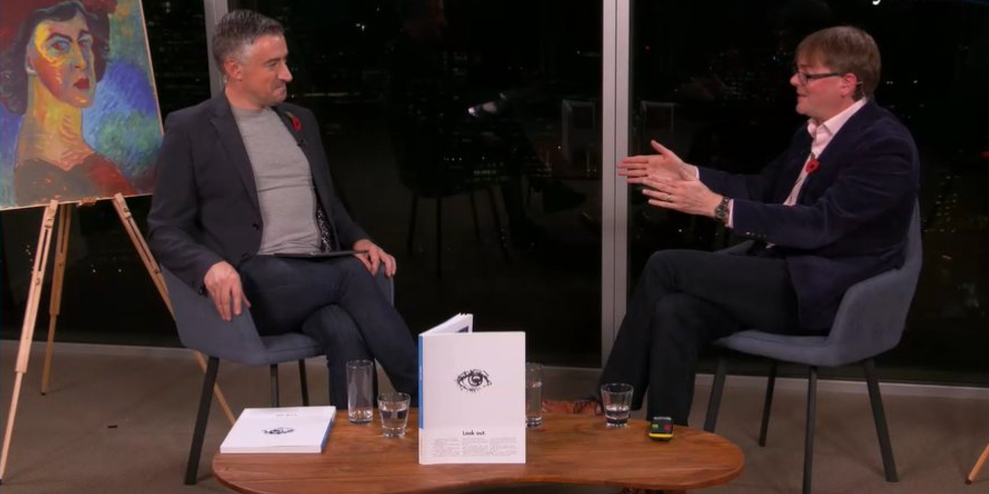An anticipated follow-up to industry hit, ‘Lemon’, the chief innovation officer of System1 Group’s new book examines how society is ‘turning inwards’ and how this is reflected in creative arts – particularly advertising.
You could view Orlando Wood’s new book Look Out simply as a look back at how advertising lost its way over the last decade. But to do so would miss the bigger point that he makes – one that is very much about the future, as the title suggests.
The book is, of course, closely concerned with how the digital revolution affected the health of advertising. And in Orlando’s enlightened and enlightening style, he sets this in the context of how the digital transformation of life affected the mental health of people.
True to the premise of the book, we are invited to view this revolution broadly, through the fascinating historical lens of how the visual arts responded to previous periods of disruption to society.
What we should learn from this, is eloquently told and beautifully illustrated. Orlando argues that new technology has contributed to an imbalance in the way we view the world around us: to a turning inwards and a detachment from humanity.
Solipsism is on the rise and inevitably happiness on the decline. This is paralleled in advertising, with targeting and creative styles focussed on the narrow and the immediate. Solemnity, intrusiveness and directness are the new tools, replacing humour, seduction and humanity. Effectiveness has fallen, along with the public’s liking for and trust in advertising. Like society, advertising is not in a healthy state.
He shows how the predominant video advertising styles have been influenced by the scientifically-derived, rigid rules of the performance marketing movement. And he reveals how this has impoverished our ability to build brands and secure the long-term growth they depend upon.
So, at its heart Look Out is about the growing conflict between science and humanity; between measurement and intuition.
The more that science directs the lives of people the more it leaves them feeling helpless; the more it leaves them out in the cold.
And in marketing too, through rules and best practice supposedly guaranteeing success, science has devalued the creative contribution and constrained its genius.
In fact, of course, all that marketing science can do is to improve the chances of success – there are no guarantees – and breaking the rules is no guarantee of failure.
As Orlando reminds us, great effective creativity is often about popularity and fame, which cannot be reduced to a formula or an algorithm; it is sometimes about sensing which rules to break and how to break them.
And there is huge potential value in this.
The danger that the rule makers overlook, is that anyone can follow the rules – there is no enduring competitive advantage in that – only creativity can create the inimitable. The book is itself, a vivid illustration of this.
So, the most important message of Look Out is that we would do well in future to rely less on following advertising rules and more on our ability to put on a great show for our brands. Let’s do it.
Peter Field is a consultant at Peter Field Consulting
…
This article first appeared in www.campaignlive.co.uk
Seeking to build and grow your brand using the force of consumer insight, strategic foresight, creative disruption and technology prowess? Talk to us at +971 50 6254340 or mail: engage@groupisd.com or visit www.groupisd.com/story

